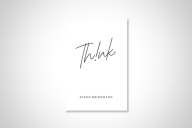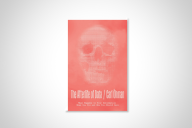You have /5 articles left.
Sign up for a free account or log in.
I recall reading somewhere that the abbots of Zen monasteries in Western countries deal with a minor but recurrent nuisance: people who show up wanting to become monks and expecting to do so just as soon as possible. Sometimes this reflects the zeal of a new convert, though often enough the urgency is accompanied by no very deep grounding in Buddhism. The applicants seem to want to renounce the world, then pick up the doctrine as they go.
After hearing them out, the head of a monastery may suggest taking a few classes, developing a meditation practice and maybe revisiting the question of ordination at a later date. But that advice often meets with impatience or dejection from would-be renunciates. They want to make a radical change in their lives -- with all due scorn for half measures -- and they tend to leave discouraged. Which, all in all, is probably for the best. The inability to accept even so modest a degree of guidance from an authority figure seems like a pretty clear sign you are not suited for monastic life.
It’s tempting to imagine this sort of awkward encounter from the abbot’s point of view: as evidence of feelings of spiritual entitlement, a demand to be put on the fast track to enlightenment. But Jérôme Brillaud’s A Philosophy of Simple Living (Reaction Books) puts the situation in a broader and rather more generous perspective. The heedless rush to plunge into a new, utterly different way of existing is more likely a sign of being overwhelmed by a life grown much too complex, and taking vows at least means having some company while you do it.
The book’s title has the unfortunate effect of suggesting it is one more self-help manual for navigating the demands of 21st-century culture and transforming everything unsatisfactory in your life, possibly by throwing stuff out. Instead, the author, a lecturer in French at the University of Manchester, digs into the difficult and sometimes contradictory history of efforts to establish “a life growing from the rich substrate of immediate experience, a life where economy of means and clarity of ends propel one forward.” The last place you’ll find life flourishing on those terms is urban civilization, which grows ever more complex (and proud of its complexity) as a matter of course. Brillaud revisits many of the better-known critics of the wastefulness, duplicity, avarice and trivial crazes that characterized the society around them, including Rousseau, Thoreau and Theodore Kaczynski. But they were latecomers. The enterprise really begins no later than the philosophical trolling of ancient Greek society by the Cynics.
Rejecting every convention and amenity they could -- including money, housing and sometimes clothing -- they equated virtue with living as close to humanity’s natural condition as possible. They regarded the distinction between public and private behavior as the root of hypocrisy. Although remembered mainly for carrying a lamp in broad daylight in search of an honest man, Diogenes best exemplified the Cynical ethos by masturbating in public. When reproached for this, he replied, “If only it were so easy to soothe hunger by rubbing an empty belly.”
It’s a fine line, sometimes, that distinguishes radical profundity from being a total loon. Be that as it may, Diogenes and his colleagues’ pursuit of simplicity -- by any means necessary -- is an extreme expression of lines of thought pursued by a wide range of figures discussed by Brillaud: poets, psychologists and religious figures, among others.
Rejecting a complex and unsatisfying way of life means stripping down the self, reducing its needs and demanding more honesty. Brillaud refers to “the muting of an imperious self-consciousness that is ultimately disillusioned about itself,” which is a tall order indeed. The call to simplicity may come, Brillaud writes, from “an epiphany, a moment when the hustle and bustle of the world disappears all at once, when the complexity of existence is condensed into a simple and irrevocable truth.” He may be thinking of the kind of thought that has crossed a lot of minds of late: “Things can’t go on like this.”








